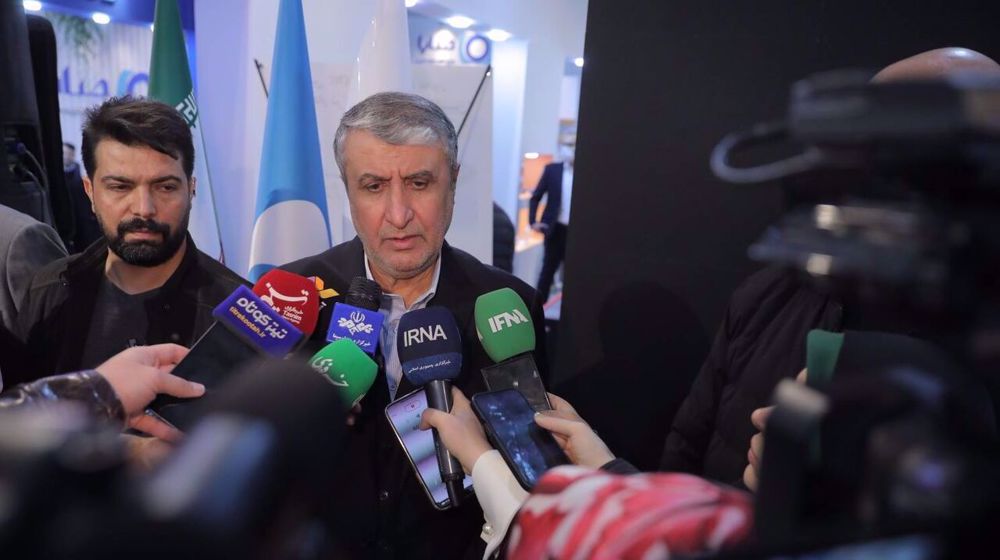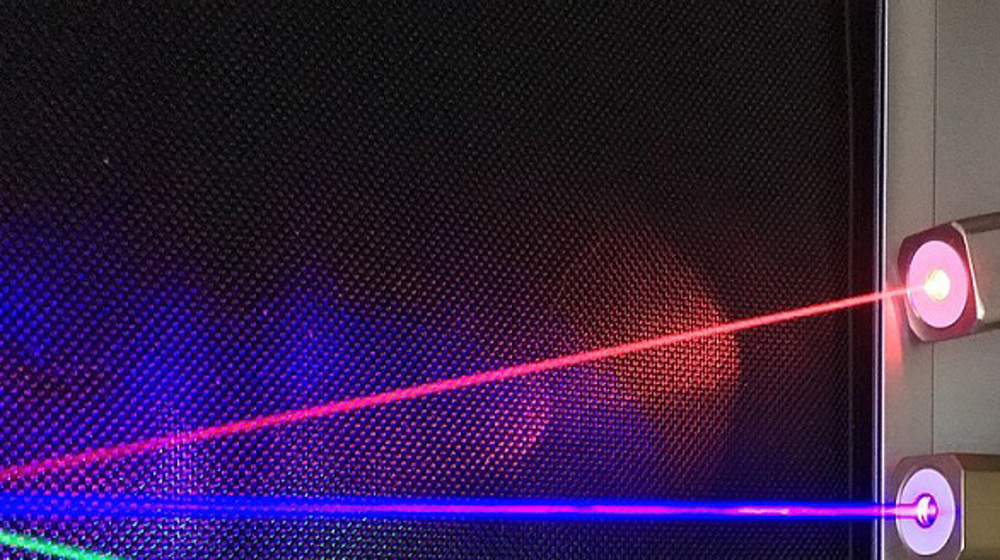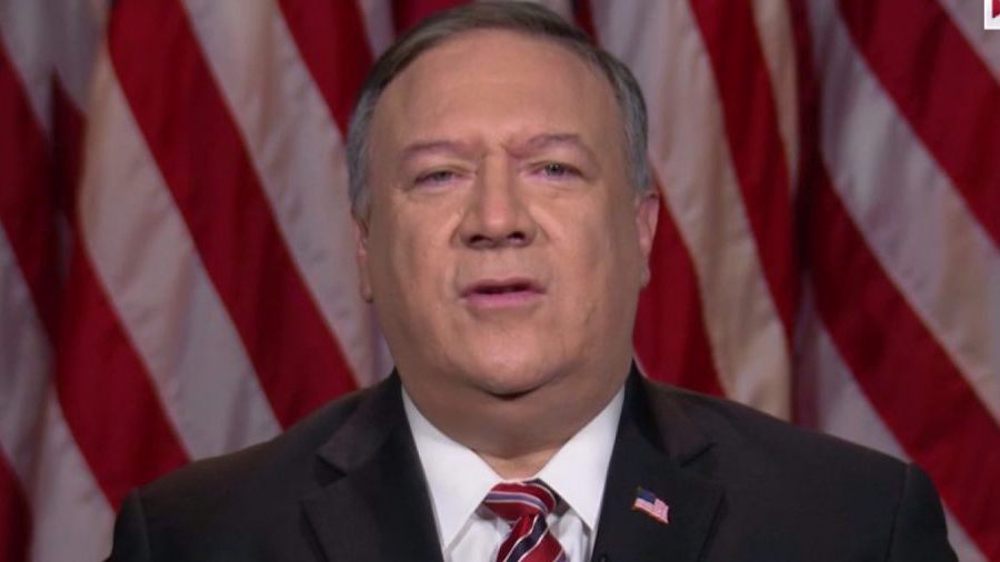US goes it alone after UN rejects demand to restore Iran sanctions
The United States has imposed new unilateral sanctions against Iran after it failed to garner support for its anti-Iran move at the United Nations.
US Secretary of State Mike Pompeo, flanked by some other members of the administration of President Donald Trump, announced the sanctions on Monday, a day after Washington unilaterally declared that all UN sanctions against Tehran were re-instated.
Pompeo said the new sanctions target Iran’s Defense Ministry and the country’s Atomic Energy Organization.
He also said that President Trump has issued an executive order "that is a new and powerful tool to enforce the UN arms embargo."
Pompeo also told reporters the US had imposed new sanctions on Venezuelan President Nicolas Maduro for working with Tehran.
"For nearly two years ... officials in Tehran have worked with the illegitimate regime in Venezuela to flout the UN arms embargo," he said. "Our actions today are a warning that should be heard worldwide," he added.
US 'has now restored UN sanctions on Iran': Trump
Later on Monday, President Donald Trump said that he was imposing sanctions on Iranians demanded enforcement by US allies, who have roundly rejected his demand.
"The United States has now restored UN sanctions on Iran," Trump said in a statement.
"My actions today send a clear message to the Iranian regime and those in the international community who refuse to stand up to Iran," he added.
Speaking before a leading US think tank, Iranian Foreign Minister Mohammad Javad Zarif said that the latest US move would have no "significant impact" on his country.
"The United States has exerted all the pressure it could on Iran, it has. It had hoped that these sanctions will bring our population to the knees. It didn't," Zarif told the Council on Foreign Relations on Monday.
"We have made it very clear that every member state in the United Nations has a responsibility to enforce the sanctions," Pompeo told reporters when asked about European opposition.
"That certainly includes the United Kingdom, France and Germany."
Treasury Secretary Steven Mnuchin, appearing with Pompeo, also announced separate sanctions on the Atomic Energy Organization of Iran.
The new sanctions came just a day after Washington unilaterally declared that all UN sanctions against Iran were re-instated under a mechanism within the 2015 nuclear deal, officially known as the Joint Comprehensive Plan of Action (JCPOA).
Pompeo announced on Saturday that all UN sanctions against Iran were "back in effect" under the “snapback” provision in the JCPOA.
The claim came 30 days after Pompeo notified the UN Security Council of what he called Iran’s “significant non-performance” with its obligations under the JCPOA – from which Trump withdrew in May 2018.
Following Pompeo's announcement, the three European signatories to the JCPOA said in a statement that the US claim has no legal effect.
The United Nations secretary-general, for his part, said “uncertainty” prevents him from taking any action on a US declaration that all UN sanctions have been reinstated against Iran.
Iran's president said the Islamic Republic will never give in to US bullying following Pompeo’s announcement.
Addressing a cabinet session on Sunday, Hassan Rouhani said that America’s so-called “maximum pressure” on the Iranian nation in political and legal sectors has led to Washington's "maximum isolation."
Iran has been under a series of economic sanctions imposed by the United States since 2018, when President Donald Trump withdrew the US from the Iran deal.
The Trump administration has unleashed its “toughest ever” sanctions to bring Iran's economy to its knees, but it keeps humming and is getting back on its feet.
For the first time in ten months, last week a US aircraft carrier sailed through the Strait of Hormuz and entered into the waters of the Persian Gulf, after Washington threatened to illegally extend an expiring arms embargo on Iran.
The US 5th Fleet said in a statement on Friday that the strike group led by the USS Nimitz and including two guided-missile cruisers and a guided-missile destroyer sailed into the Persian Gulf to operate and train with US partners.
The Nimitz strike group includes the USS Princeton and USS Philippine Sea, both guided-missile cruisers, and the guided-missile destroyer USS Sterett.
The United States regularly sends aircraft carrier groups into the Persian Gulf. But the Nimitz strike group is the first carrier to operate in the Persian Gulf since USS Abraham Lincoln (CVN-72) made the Strait of Hormuz transit in November 2019.
This came just days after Pompeo threatened to enforce an arms embargo and “UN” sanctions against Iran, despite nearly the entire UN Security Council saying Washington does not have the grounds to do so.
FM says Iran open to talks ensuring its legitimate rights and based on mutual respect
Rights groups in Australia call on authorities to arrest Israeli president
FIFA must strip US of 2026 World Cup hosting rights over Trump’s hawkish policies: Analyst
Iran Army slams EU’s blacklisting of IRGC as ‘shameful’, ‘irresponsible’
Iran considers armies of EU states as ‘terrorist organizations’: Security chief
Sharif University scholars condemn US foreign policy as illegal, destabilizing
Pezeshkian says Iran seeks no war, vows 'decisive' response to any attack
Iran ready for both war and dialogue, ‘will not accept dictation’: FM Araghchi
















 This makes it easy to access the Press TV website
This makes it easy to access the Press TV website